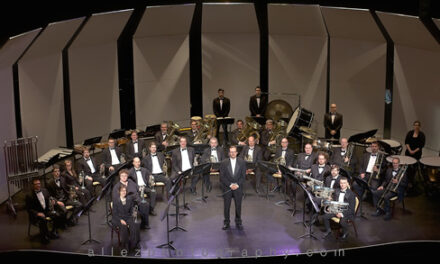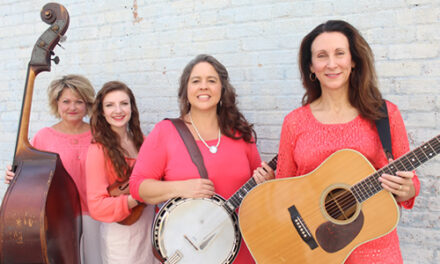Experimental theatre, appropriately performed in the black box Sheafer Lab Theater at Duke University, is not for the average person. However, the theatre enthusiast with a taste for Avant-garde can stew over Mabou Mines‘ “de-re-construction” of Tennessee Williams’ The Glass Menagerie. The staged reading was presented by Duke Performances.
The Mines’ adaption combined Williams’ Out Cry and The Glass Menagerie in order to analyze the relationship between Williams and his sister, Rose. Williams spent a great deal of his life caring for his sister after she was declared insane and lobotomized. Her essence is found in his plays, many times in the lead female characters. While the sibling relationship was clear in the adaption, the workshop reading lasted about two hours and left me confused and questioning the choices that were made.
The actual writing creates a clear theme of sibling relationships that reflect Williams’ feelings about his sister. The choices made in the reading, however, take away from the purpose of the study. Multiple actors are used to speak the same roles and scenes are adapted for (very obvious) shock value. Even though the workshop reading was more like a rehearsal than a performance, I still question the selective use of props and costumes. A candelabra and a knife were wheeled out for a “scene,” a bike was ridden in for an actor’s entrance, but there was no mention of the obvious costumes hanging stage left. Furthermore, Laura’s glass menagerie consisted of a paper cut out of a unicorn. The middle ground just didn’t sell it for me. I ended up questioning more of their added choices than really listening to the writing. Furthermore, the use of extra actors made me question what Mabou Mines was trying to say.
The use of only two actors seemed perfectly fitting for the plot of Out Cry, but then there ended up being four more actors. Two actors spoke the same lines (in unison, typically) as Amanda, the mother in The Glass Menagerie. The two other actors, who are both little people, played Jim and Laura. The character of Laura moved back and forth between being played by Maude Mitchell and Hannah Kritzeck. Are they making a statement about Williams’ characters? Or are they making a statement about Rose? Are they making a statement about society? The intense questioning did not help me land on any kind of reasoning. In fact, it only left me thinking about the amount of questions I was left with.
The actors read from scripts – obviously, since it was a reading – and occasionally moved about the space. Other times they sat stationary at a fold up table with four chairs. On the table were two wine bottles filled with water, five drinking cups, and a table microphone. Behind the table stood a light stand with one exposed, working light bulb, which was used as an important light source. At the top of the reading and occasionally throughout, the headset microphones were used to create an echo with the actors’ voices. The technical elements were not fine tuned, but music was successfully inserted for comedic effect. Indeed my favorite part of the reading, whether logical or not, were the music sessions. This includes a dance-break fantasy of Laura to Lady Gaga’s “Paparazzi.”
While I do not understand a lot of the choices made by Mabou Mines, I can say that the workshop reading forced me to think about how I feel about experimental theatre. The reading of the adaption is no less valid than any other work. It is experimental theatre that moves the art forward and pushes audiences to think outside of the standards. With that being said, I respect the attempts of Mabou Mines, but I’m not sure I got the message they were trying to send.












